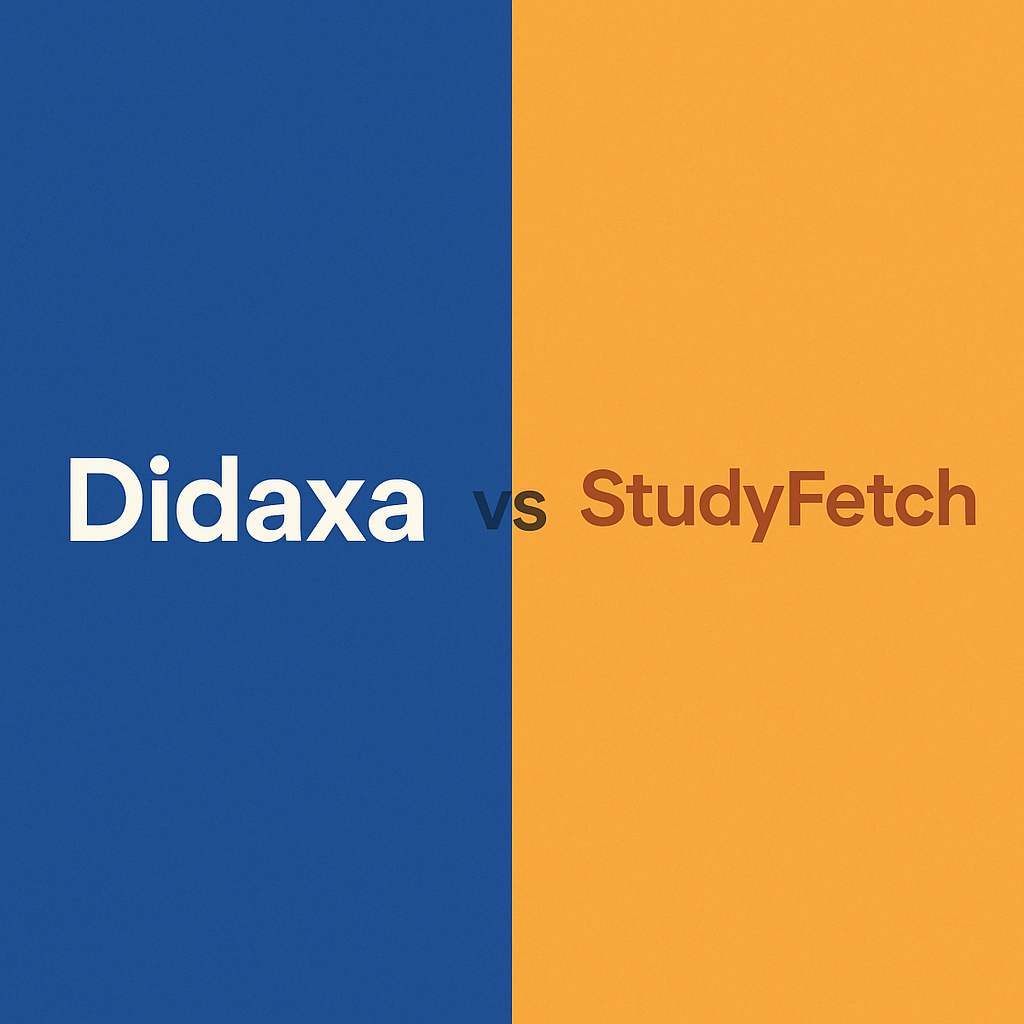Why You Think You're 'Bad at Math' (And How AI is Changing Everything)
Why You Think You're 'Bad at Math' (And How AI is Changing Everything)
Let me guess: somewhere between third grade and high school, you decided you were "not a math person." Maybe it was that one teacher who made you solve problems at the board while the class watched. Perhaps it was the timed multiplication tests that made your palms sweat. Or that moment when you asked a question and got "You should already know this" in response.
Here's the truth that might change everything: You're not bad at math. You were taught badly.
The Math Anxiety Epidemic: It's Not You, It's the System
Research from Stanford University shows that 93% of adults experience some level of math anxiety. That's not a personality trait—it's a systemic failure. When nearly everyone struggles with the same subject, we need to examine the teaching, not the students.
The Traditional Math Class: A Perfect Storm of Anxiety Triggers
Traditional math education is uniquely designed to create anxiety:
- • Public Performance Pressure: Being called to the board to solve problems while 30 peers watch
- • One-Size-Fits-All Pacing: Moving to new topics whether you've mastered the previous ones or not
- • Judgment-Heavy Environment: Red marks, timed tests, and competitive grading
- • Abstract First, Application Never: Learning formulas without understanding their real-world relevance
- • The "Smart Kid" Myth: The toxic belief that math ability is innate rather than developed
The Psychology Behind Math Phobia: Your Brain's Defense Mechanism
When you experience math anxiety, your brain literally cannot function properly. MRI scans show that math anxiety activates the same pain centers in the brain as physical injury. Your prefrontal cortex—responsible for working memory and logical reasoning—shuts down. It's not that you can't do math; it's that anxiety makes math physically painful for your brain.
The Vicious Cycle of Math Avoidance
- Initial Struggle: A concept isn't explained in a way that clicks for you
- Negative Feedback: Poor test performance or teacher disappointment
- Anxiety Development: You start dreading math class
- Avoidance: You mentally check out to protect yourself from feeling "stupid"
- Knowledge Gaps: Missing foundations make future topics even harder
- Identity Formation: You label yourself "not a math person"
Why Teachers (Unintentionally) Make It Worse
Most math teachers genuinely want to help, but they're trapped in a broken system:
- • Time Constraints: 45 minutes to teach 30 students with vastly different learning speeds
- • Curriculum Pressure: Must cover X topics by year's end, regardless of mastery
- • Limited Resources: Can't provide one-on-one support to struggling students
- • Their Own Math Anxiety: Studies show 90% of elementary teachers experience math anxiety themselves
Enter AI: Your Judgment-Free, Infinitely Patient Math Partner
This is where platforms like Didaxa are revolutionizing math education. Imagine having a math tutor who:
- • Never judges you for asking the "same question" five times
- • Adapts instantly to your learning speed
- • Explains concepts in multiple ways until one clicks
- • Available 24/7 without any performance pressure
- • Celebrates small wins and builds confidence gradually
Real Example: Sarah's Transformation with Didaxa
Sarah, 28, marketing professional, hadn't touched math since high school. She needed statistics for a data analytics role but was terrified.
Week 1 with Didaxa:- • AI assessment revealed she was solid on basic arithmetic but struggled with fractions
- • Instead of jumping to statistics, Didaxa created a personalized path starting with visual fraction exercises
- • Each concept linked to real marketing scenarios (conversion rates, ROI calculations)
- • No time limits, no grades, just "Try again" with different explanations
- • Sarah was solving probability problems she never thought possible
- • The AI noticed she learned better with visual representations and adjusted all lessons accordingly
- • When she got stuck on standard deviation, the AI provided three different explanations: visual, practical, and mathematical
- • She could ask "stupid questions" at 11 PM without embarrassment
- • Sarah passed her company's data analytics assessment
- • More importantly, she no longer identified as "bad at math"
- • She actually enjoyed the logical puzzle-solving aspect she'd never experienced before
The Didaxa Difference: How AI Makes Math Human Again
1. Diagnostic, Not Judgmental
Traditional Test: "You got 60%. F grade." Didaxa Approach: "You understand 60% of this concept. Let's strengthen the remaining 40% with these specific exercises."
2. Multiple Learning Pathways
Everyone's brain processes math differently. Didaxa's AI recognizes whether you're:
- • A visual learner (graphs, diagrams, animations)
- • A verbal processor (story problems, explanations)
- • A kinesthetic learner (interactive manipulatives)
- • A logical sequential thinker (step-by-step proofs)
3. Mistake-Friendly Environment
In Didaxa:
- • Mistakes are data points, not failures
- • Wrong answers trigger alternative explanations, not red X's
- • You can attempt problems unlimited times
- • The AI celebrates improvement, not just perfection
4. Contextual Learning
Instead of abstract formulas, Didaxa connects math to your interests:
- • Geometry through architecture and design
- • Algebra through coding and logic puzzles
- • Statistics through sports analytics or social media metrics
- • Calculus through physics simulations and real-world optimization
Breaking Free from Math Anxiety: The Self-Paced Revolution
The biggest advantage of AI-powered learning? Time pressure vanishes.
No more:
- • Racing through timed tests
- • Pretending to understand to keep up with the class
- • Falling behind and never catching up
- • Comparing yourself to the "math genius" sitting next to you
- • Master each concept completely before moving on
- • Revisit forgotten concepts without shame
- • Learn at 2 AM or 2 PM, whatever works for you
- • Progress at your natural learning pace
The Neuroscience of Confidence: Why Didaxa Works
When you learn math without anxiety, remarkable things happen:
- Neuroplasticity Activation: Your brain literally grows new connections
- Dopamine Rewards: Small, frequent successes create positive associations with math
- Growth Mindset Development: You start believing ability can be developed
- Transfer Learning: Math confidence spills into other areas of life
Real Success Stories: From Math Phobic to Math Confident
Marco, 35, Chef turned Data Analyst: "I failed math three times in high school. With Didaxa, I learned Python and statistics in 6 months. The difference? No judgment, infinite patience, and explanations that actually made sense. Now I analyze restaurant data for a living." Jennifer, 42, Returning Student: "I avoided math for 20 years. Didaxa started me with 5-minute sessions of basic concepts. No pressure, no grades. Six months later, I'm helping my teenager with calculus. I actually enjoy it now." Ahmed, 19, Engineering Student: "University calculus was destroying me. Didaxa identified that my algebra foundation was shaky. We went back, fixed those gaps, and suddenly calculus made sense. My professor couldn't believe the transformation."The Future is Already Here: Join the Math Confidence Revolution
You don't have to carry math anxiety for the rest of your life. With AI-powered platforms like Didaxa, you can:
- • Start exactly where you are, no matter how "behind" you think you are
- • Learn without judgment, competition, or time pressure
- • Build genuine understanding, not just memorization
- • Transform math from a source of anxiety to a tool for empowerment
Your First Step: Just 5 Minutes
The journey from math anxiety to math confidence doesn't require a heroic leap. It starts with just 5 minutes of judgment-free exploration. No tests, no grades, no watching eyes—just you and an infinitely patient AI tutor who believes you can learn anything.
Because here's the final truth: You were never bad at math. You were just waiting for the right teacher. And that teacher is here now, available 24/7, ready to adapt to exactly how your brain learns best.
Ready to rewrite your math story? Start your free Didaxa trial today and discover the mathematician you always were.The Bottom Line
Math anxiety is not a life sentence. It's a learned response to poor teaching methods that can be unlearned with the right approach. AI-powered platforms like Didaxa aren't just teaching math differently—they're healing educational trauma and proving that everyone, including you, can be "a math person."
The question isn't whether you can learn math. It's whether you're ready to let go of an old story and start writing a new one. With AI as your guide, that new chapter starts now.
Written by
Didaxa Team
The Didaxa Team is dedicated to transforming education through AI-powered personalized learning experiences.
Related Articles
Continue your learning journey

Didaxa vs StudyFetch: Which AI tutoring platform fits your learning style?
An analytical comparison between StudyFetch's proven lecture-recording tools and Didaxa's advanced multi-agent AI for deep learning.

Didaxa vs AlgorEducation: Which AI tutoring platform really delivers deeper learning?
An independent comparative analysis of Didaxa and AlgorEducation based on functional testing and observed capabilities.

Future-Ready Learning: How Professionals Are Mastering Tomorrow's Skills Today
Discover how Didaxa's interactive, AI-powered learning transforms professional development with tailored paths from cloud computing to personal finance.
Experience the Future of Learning
Join thousands of students already learning smarter with Didaxa's AI-powered platform.